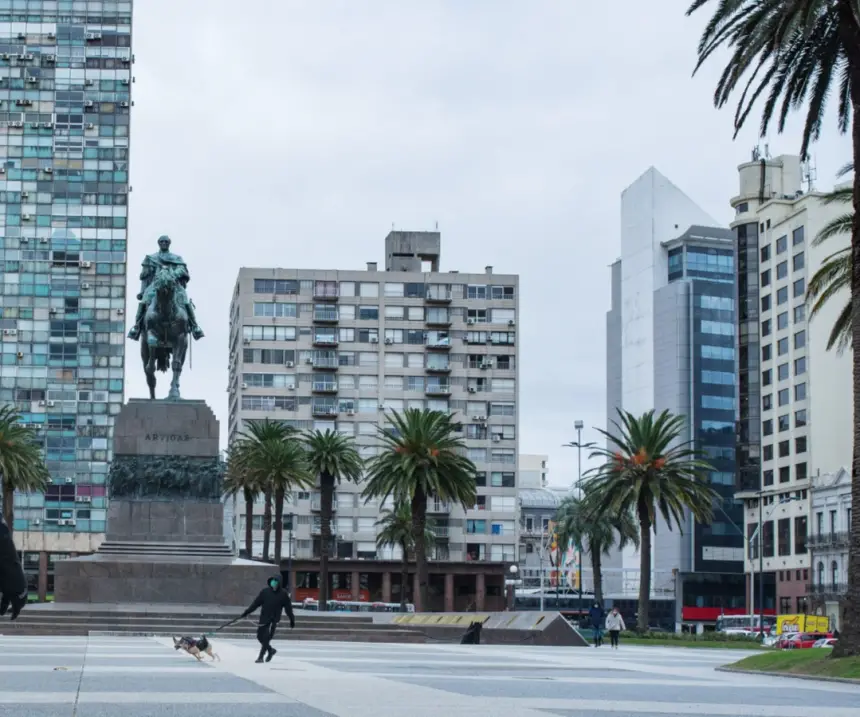As we usher in 2024, the rental conundrum, especially among the younger population, remains a stark reality in Spain. Despite the government’s interventionist measures to mitigate the effects of inflation, accessing rental housing is still a significant challenge for many Spaniards, particularly in major urban centers. It’s an issue that Spain has been grappling with for years, but in Argentina, following the presidency of Javier Milei, it seems to have been nipped in the bud.
The new Argentine president announced, in late 2023, a list of 30 out of the 300 regulatory repeals included in the new decree aimed at strengthening and revitalizing the country’s economy.
The Impact of Repealing the Rental Law
Since the introduction of this new measure, the Argentine real estate market has undergone a dramatic transformation, particularly in Buenos Aires. Prices have dropped, and the supply has surged significantly. According to key players in the sector, the average rental prices have experienced a significant decline.
The Argentine Real Estate Chamber (CIA) has been observing encouraging results during Milei’s first month in office. They assert that the available housing stock in Buenos Aires has doubled in recent weeks.
This is a noteworthy development considering that, in recent years, the number of available rental properties had significantly decreased due to price controls and other interventionist measures imposed by the Peronist government of Alberto Fernández. Now, it’s estimated that the number of available houses has exceeded 800,000 units, resulting in a 20-30% correction in rental prices at the beginning of the year, amounting to a cumulative 15% decrease.
Moreover, contracts with a year of upfront annual payment are experiencing around a 35% discount. It’s interesting to note that new contracts are now being formalized in dollars instead of euros. About 6 out of 10 agreements are now closed in pesos, signaling a positive shift, considering that, a few weeks ago, 60% of the offered rental properties were priced in dollars.
Milei’s Sweeping Decree
Javier Milei signed a decree repealing 300 laws and regulations to liberalize the country’s economy. It’s an unprecedented Stabilization Plan aimed at addressing the fiscal deficit and deregulating the economy in one fell swoop. Undoubtedly, it marks the most significant reform process in Argentina in the last four decades.
Alongside the repeal of the Rental Law, other notable repeals include the Supply Law, Gondolas Law, National Purchase Law, the Observatory of Prices of the Ministry of Economy, Industrial Promotion Law, Commercial Promotion Law, and regulations preventing the privatization of companies, as well as the State’s company regime.
Spain’s Rental Market Scenario
Argentina sets an example of the path Spain should consider, where 2024 has started with still-high prices heading toward regulation. The supply is diminishing, demand is increasing, causing chaos and confusion, especially among younger generations who find it nearly impossible to emancipate themselves, unless they share housing.
Soaring prices have led to a 12% decrease in the availability of permanent rental homes during the same period and continues to decline, especially in strategic markets like Madrid, Málaga, and Barcelona.
The new housing legislation, approved by the Spanish Congress, sets a limit on rent increases in tense areas, being 3% in 2024, surpassing the 2% from 2023. This extraordinary cap on rent increases must be updated by the INE before December 31, based on the IPC, and must not exceed it.
The average rental housing price in Spain continues to rise, reaching €12.1 per square meter on average in December, marking a 10% increase compared to the same month in 2022.
Referring to the sixth final provision of the Law 12/2023 of May 24, for the right to housing, tenants with a lease regulated by the Urban Leases Law can negotiate the increase that will apply in the annual rent update.
However, if the landlord is a large holder, the increase will result from the new agreement between both parties (always below 3%). If the landlord is not a large holder, the rent price update will be the result of the new agreement between both parties, but always below 3%.
Thus, if the rent is €1,000, the property owner can only increase the price by €30 per month (€360 per year), unless there is a prior agreement between the two parties.
But 2023 did not bring the corresponding 2% increase based on Article 1964 of the Civil Code, which could be cumulative. However, this increase must always consider the limits set by the legislation.
In 2024, the aids outlined in the State Housing Plan 2022-2025 for vulnerable people are maintained. This adds to the request for the Youth Rental Bonus, which implies a €250 monthly aid for individuals aged 18 to 35 who meet specific requirements.
If the landlord rents a home for the first time to individuals aged 18 to 35, and the property is in a tense area, the increased 70% reduction can be applied. It will also be present in homes leased to the Administration or non-profit entities. The increased 60% reduction will be for cases of rehabilitation works in the two years before the contract is signed.

